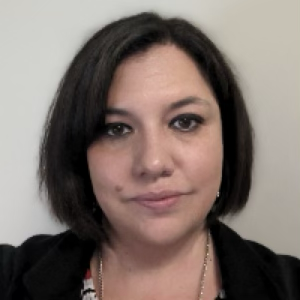
Kimmy Gustafson
If you are already working as a registered nurse and have an interest in protecting the welfare and health of others, you may want to consider training to become a forensic nurse examiner. These professionals learn how to recognize and document the signs of abuse and violence that could be used to prosecute a criminal in a courtroom. Additionally, one’s forensic skills can aid in other types of situations. These can include cases in the aftermath of mass disasters, child abuse and neglect cases, corrections, domestic violence, elder abuse, and more.
Forensic nurses help to bridge the gap between the healthcare field and the courtroom. They gain specific training, often through advanced certifications or graduate degree programs. The International Association of Forensic Nurses website contains a wealth of information about the field, including educational events and webinars, sexual assault nurse examiner (SANE) training, and a career center. Most often, registered nurses who aspire to become forensic nurse examiners seek their SANE certification or a master’s or advanced degree in forensic nursing to be eligible to advance in the field.

Sarah Hagedorn has been practicing as a nurse for nearly two decades and as a forensic nurse since 2018. She earned her BSN from the University of Colorado, Colorado Springs, and obtained her MSN from Grand Canyon University. She worked in adult critical care for over 11 years with a focus on care of the trauma patient.
Dual board-certified as a SANE-A and a SANE-P, Hagedorn is the manager of the Forensic Nurse Examiner Team at Memorial Hospital, University of Colorado Health in Colorado Springs, Colorado. This team provides medical forensic care to over 3500 patients per year who are victims of violence (sexual assault, human trafficking, intimate partner violence, child abuse, elder abuse, strangulation). This team is housed in the first hospital-based Forensic Center of Excellence in the world.
In addition, Hagedorn oversees the FNE team at Safe Passage, the first co-located child advocacy center in the state of Colorado. She serves as a principal investigator for the “Non-fatal Strangulation Study,” which aims to increase recognition of the acute and delayed complications of strangulation and to identify standards of care. Hagedorn provides clinical skills training through Memorial Hospital’s Simulation Laboratory, teaching sexual assault care to providers from across the US, with a special emphasis on those working in rural or underserved areas. She also provides expert testimony and teaching on issues including sexual violence, intimate partner violence, child abuse, human trafficking, and strangulation.
Additionally, she is a forensic nursing instructor at the University of Colorado, Colorado Springs. Hagedorn has presented nationally on topics related to the care of patients who have experienced violence.
ForensicsColleges.com: What do you wish the public understood about forensic nurses?
Hagedorn: One of the most important things to understand is that violence is a health care issue, and people who have experienced violence have unique medical and psychosocial needs. These needs deserve a specialty response, and that is why FNEs provide a critical service to vulnerable patients. Many people think that forensic nursing is only about evidence collection or that we work for law enforcement.
Forensic nurses are nurses, and our focus is on the health and safety of our patients. Yes, we can collect biological evidence and take forensic photos, but our priority is health care. It is our job to work with patients in a trauma-informed way to ensure that they have access to the care and services that are right for them.
ForensicsColleges.com: What advice would you give to aspiring forensic nursing students?
Hagedorn: Strong critical thinking and clinical skills are fundamental for forensic nurses, but to be a successful FNE and serve patients in the way they deserve, you need a high degree of emotional intelligence. Our job is to care for people during what is potentially the most difficult thing they have experienced, and we must meet them where they are with knowledge and kindness, without our own agendas getting in the way.
My advice to aspiring FNEs is to learn how to be a good nurse before jumping into forensic nursing, build a solid foundation, and then explore the specialty.
Forensic nurse examiners can be registered nurses who have completed their SANE certification or who have even obtained an advanced degree. According to the U.S. Bureau of Labor Statistics (BLS 2025), job opportunities for registered nurses are expected to grow by 5 percent from 2023 to 2033. This job growth is considered faster than average compared with the job growth for all occupations in the same timeframe (4 percent). The BLS generally predicts that registered nurses with at least a bachelor’s degree will find better job prospects than those without one.
The BLS (May 2024) notes that the mean annual salary for registered nurses in the U.S. was $98,430. However, registered nurses in the 10th percentile earned $66,030 or less, while those in the 90th percentile earned $135,320 or more. The median (50th percentile) pay was $93,600.
Pay also varies by state, with the BLS showing that registered nurses, although not forensic nurse examiners specifically, earned the most in Colorado, Minnesota, Washington, New Jersey, and New York. Pay also depends on the skills required for the job. Some positions may only seek registered nurses who are SANE-certified, while others may look for people who have advanced to the level of nurse practitioner, which typically requires a master’s degree.
Students wanting to pursue a career in the field of forensic nursing most often gain experience by working in an emergency room setting, in a crisis clinic, a women’s health or pregnancy facility, or a similar environment. Most often they need to have at least two years of experience, and SANE certification can be an asset.
However, a variety of schools do offer educational programs to help nurses and other professionals enter this field. These include the University of California, Riverside, which offers a 16-unit online certificate in forensic nursing that trains registered nurses, licensed vocational nurses, and even paramedics to be able to properly identify and collect evidence so that it holds up in a court of law. Students also learn about violence and its intersection with agencies such as criminal justice and law enforcement departments.
Duquesne University in Pittsburgh, Pa., provides a Master’s of Science in Nursing (MSN) degree in forensic nursing. Students take 20 credits of core nursing courses as well as 18 credits of specialty courses that include Advanced Practice Forensic Nursing, Theories of Violence and Trial Preparation and Clinical Law. The degree is available online, although nurses are required to come to campus to complete clinical laboratory work for one of the courses.
As well, Xavier University, in Cincinnati, provides an MSN with a forensics track to help prepare students for occupations such as forensic psychiatric nurse, nurse coroner, and sexual assault nurse examiner. The courses in the forensics track are an additional ten semester hours on top of the 26 semester hours required for the MSN program.
Most candidates take three to six years from start to first forensic role, depending on whether they pursue an ADN vs. BSN, how fast they pass the NCLEX, and whether they add a certificate or learn on the job.
The first step to becoming a forensic nurse examiner is to graduate from high school. Study biology, chemistry, psychology, and statistics to prepare for future studies. Volunteering in hospitals, crisis centers, or victim-advocacy programs builds exposure early.
All forensic nurse examiners must first complete nursing education. Earn an ADN (faster, entry-level) or a BSN (broader prep and often preferred for specialty roles). Ensure the program you complete is accredited.
After graduation, pass the NCLEX-RN. Today’s exam adapts to performance and typically ranges from 85 to 150 items (max 5 hours).
Apply to your state board for licensing. You will need to pay the appropriate fees and submit a background check. Requirements will vary by state. If you’ll practice across states, check whether your home state participates in the Nurse Licensure Compact (NLC).
There are two common routes for obtaining the necessary training for forensic nurse examiners. They are:
While not always required, certifications boost employability and set practice standards:
Target EDs, sexual-assault response teams (SART/SANE programs), child-advocacy centers, medical examiner/coroner offices, correctional health, and community clinics. Tailor your résumé to highlight chain-of-custody documentation, trauma-informed care, and courtroom readiness.
Keep your RN license active. Renew SANE or FNCB credentials per their cycles (practice hours + CE); save audit documentation. Consider additional certificates (pediatrics, death investigation) or graduate study for leadership, research, or advanced practice roles.
One can seek professional certification to demonstrate expertise and enter the forensic nurse examiner field. SANE certification is given to nurses who have completed coursework specifically involving treatment in sexual assault and abuse cases. Requirements to become SANE certified vary by state, so it may be best to contact your state board of nursing. As a minimum, typically, at least 40 hours of classroom training and 40 hours of clinical training are required.
SANE coursework is offered through many avenues. The Colorado SANE/SAFE Project, led by UCHealth Memorial Hospital, delivers comprehensive 64-hour Sexual Assault Nurse Examiner/Forensic Examiner (SANE/SAFE) education, accessible online and in clinical simulation, to ensure forensic nurses stay aligned with International Association of Forensic Nurses (IAFN) standards in caring for sexual assault patients.
The SAFE Center of Iowa offers an online SANE program. This program includes 40 hours of self-directed online clinical courses/ Therea are also on-campus live trainings. As well, many jurisdictional agencies, such as departments of public health and attorney general’s offices, may also offer courses, and the certification is available for nurses working with adults/adolescents (SANE-A) as well as those working with children (SANE-P).
The American Nurses Credentialing Center offers Advanced Forensic Nursing-Board Certified (AFN-BC) certification. Application for this certification is mostly portfolio-based, but candidates must also have a graduate degree in forensic nursing and have completed at least 2,000 hours in the field within the past three years. This credential can be renewed every five years, provided the applicant has met the renewal requirements.

Kimmy Gustafson
Kimmy Gustafson’s expertise and passion for investigative storytelling extends to the world of forensics, where she brings a wealth of knowledge and captivating narratives to readers seeking insights into this intriguing world. She has interviewed experts on little-known topics, such as how climate crimes are investigated and prosecuted, and has written for ForensicsColleges.com since 2019.
Kimmy has been a freelance writer for more than a decade, writing hundreds of articles on a wide variety of topics such as startups, nonprofits, healthcare, kiteboarding, the outdoors, and higher education. She is passionate about seeing the world and has traveled to over 27 countries. She holds a bachelor’s degree in journalism from the University of Oregon. When not working, she can be found outdoors, parenting, kiteboarding, or cooking.